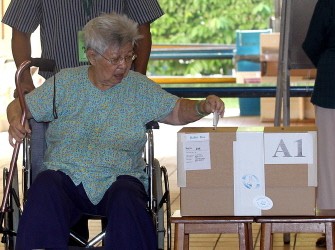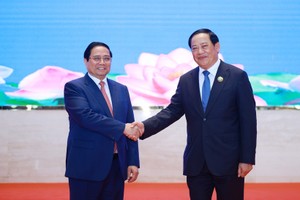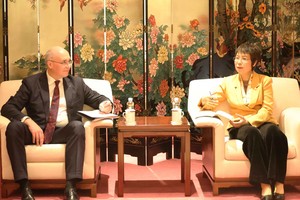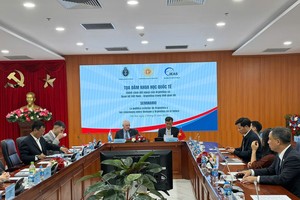SINGAPORE, May 7, 2011 (AFP) - Singaporeans went to the polls on Saturday with opposition parties hoping to reduce the government's overwhelming majority amid voter disenchantment over the cost of living and immigration policies.

The People's Action Party (PAP), in power since 1959, won 82 of the 84 seats contested in 2006 but this time faces its most vigorous challenge in decades with tens of thousands of people attending opposition rallies.
Voters across the tropical island lined up in humid, 33 degree (91.4 Fahrenheit) weather before 12 hours of balloting started at 8:00 am (0000 GMT).
Six opposition parties fielded slates against the PAP, which was taken aback by the depth of public disquiet and forced to issue a rare apology for policy mistakes while appealing for support from new voters.
Opposition parties face tough restrictions on political activities.
Close to half of the 2.2 million voters were casting ballots for the first time, partly due to uncontested seats in past polls, adding an element of uncertainty in a country where publishing pre-election poll results is banned.
The opposition relied heavily on the Internet, particularly social media platforms such as Facebook, YouTube and Twitter, because the mainstream newspapers and broadcast media are widely regarded as PAP mouthpieces.
"People used to say they don't vote for the opposition because they don't have much of a choice, but the Workers' Party is fielding quite a strong team this time," voter Annie Lim, 61, said in Aljunied, the most hard-fought constituency.
Voting is compulsory in Singapore, a former British colony which has a modified version of the Westminster parliamentary system.
Most parliamentary seats are contested in clusters of four to six candidates, a setup seen as favourable to the well-entrenched PAP -- but also offering a windfall to the opposition if one of its tickets gets lucky.
"I'm glad I'm able to vote for my own future," said Muhammad Nurashik, a 25-year-old petrochemical technician casting his ballot for the first time.
"I'm willing to see change so I'm voting for the opposition."
But the PAP is hoping that undecided voters worried about potential instability, along with those who have benefited from the country's rapid economic progress, will keep it comfortably in power.
"They have a good track record, they have policies with foresight," said Liew Shi Xiong, 26, a civil servant and first-time voter.
Not all of the 87 seats in the incoming parliament were being contested on Saturday. Five have already been won in a walkover by a PAP team led by the republic's 87-year-old independence leader Lee Kuan Yew.
His son, Prime Minister Lee Hsien Loong, 59, has apologised for gaffes since the last poll, including the 2008 escape of a suspected Islamic militant, failure to prevent floods in 2010 and high home prices.
Another sensitive issue was the rapid influx of immigrants in recent years, which has been blamed by Singaporeans for depressing wages, causing overcrowding and straining public services at the expense of citizens.
The opposition fielded successful professionals, entrepreneurs, former civil servants and ex-PAP activists as candidates.
The PAP ticket is led by veteran politicians, bureaucrats, former military officers, pro-government unionists and community organisers for the party.
The PAP has long relied on its strong economic record to roll over the opposition in elections, but has been accused of stifling dissent and freedom of expression to perpetuate its hold on power.
The economy grew a record 14.5 percent in 2010 and per capita gross domestic product stood at Sg$59,813 ($48,271), according to the statistics department, making Singaporeans the second wealthiest Asians after the Japanese.
But the prosperity has not been spread evenly and inflation this year is forecast at 3.0-4.0 percent, high by Singapore standards, as a result of rising food and oil prices.
Apart from seats won or lost, the PAP's overall share of the popular vote in Saturday's polls will be closely watched.
The party won 67 percent of the overall vote in 2006, down from 75 percent in 2001.
























